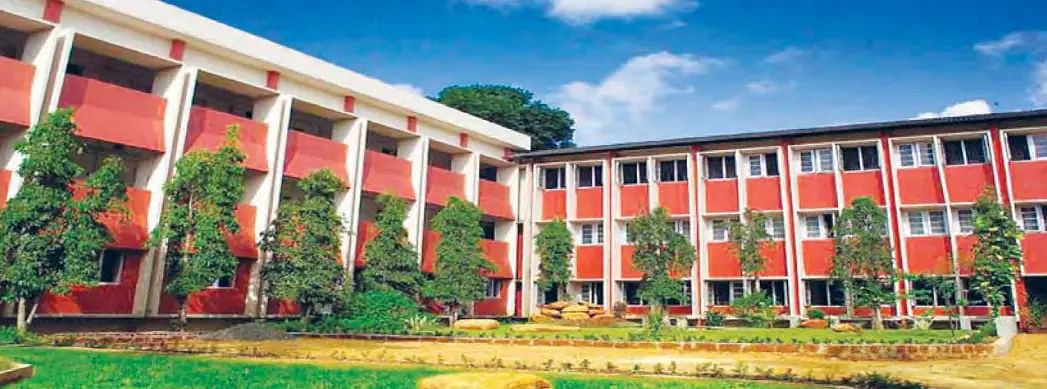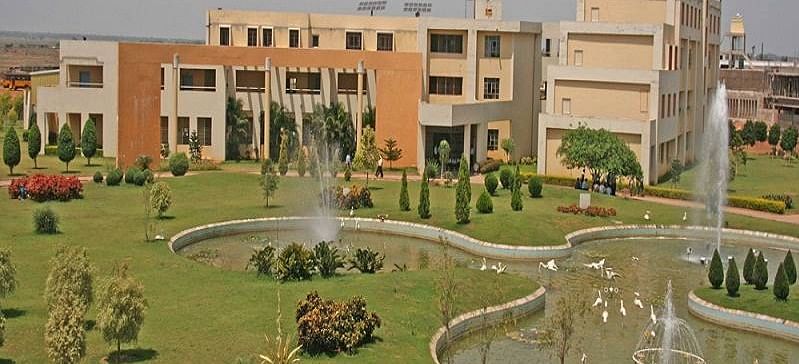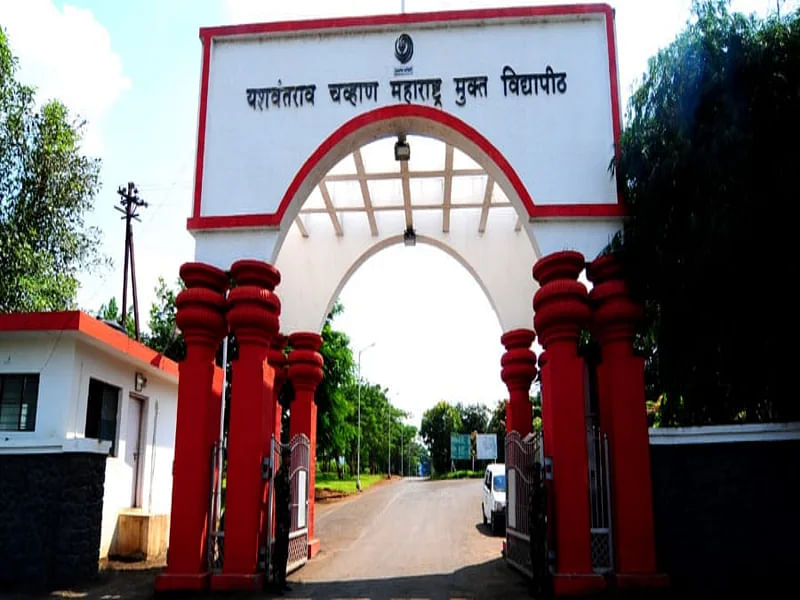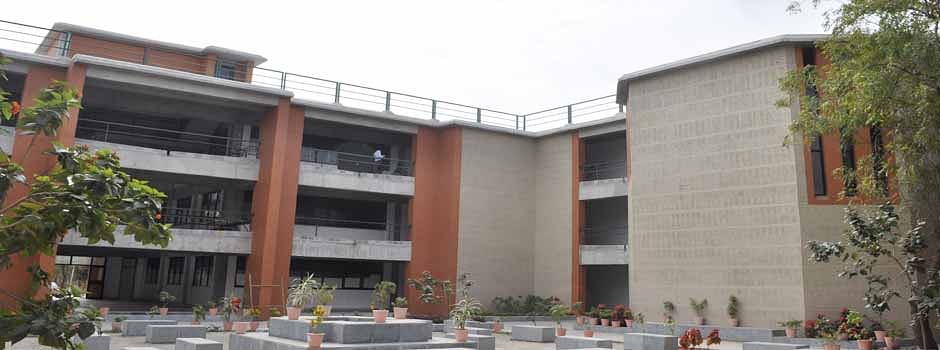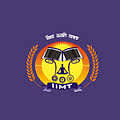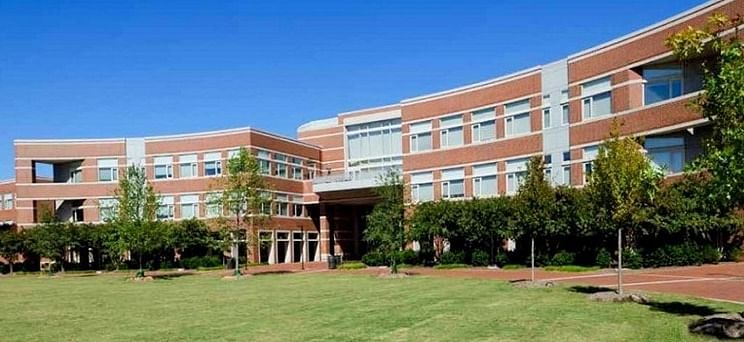B.Tech Marine Engineering Syllabus and Subjects

The B.Tech Marine Engineering syllabus is structured over eight semesters and focuses on crucial topics such as design, technology, construction, and maintenance of ships and marine vessels. The course curriculum includes core subjects, elective offerings, and practical sessions to provide students with an extensive knowledge and understanding of Marine Engineering.
The core B.Tech Marine Engineering subjects include fundamental concepts such as Applied Thermodynamics, Fluid Mechanics, Mechanics, Ship Structure, etc. The elective subjects include topics such as Ship Safety, Marine Heat Engines, Marine Control and Automation, etc.
The BTech Marine Engineering course equips students with knowledge and skills to design, analyse, and implement marine systems and technology for successful careers in the maritime, shipping, and related industries.
Table of Contents
B.Tech Marine Engineering Syllabus Semester Wise
The B.Tech Marine Engineering syllabus is generally the same across all institutions in India. However, certain subjects may differ depending on the institutions. The semester wise BTech Marine Engineering syllabus is provided in the sections below.
B.Tech Marine Engineering 1st Year Syllabus
B Tech Marine Engineering 1st year syllabus focuses on the fundamentals of engineering principles such as basic electrical and electronics engineering, thermodynamics, engineering graphics, etc. The BTech Marine Engineering 1st year syllabus is given below.
| Semester I | Semester II |
| Mathematics I | Mathematics II |
| Engineering Physics | Material Science |
| Engineering Chemistry | Applied Thermodynamics |
| Basic Electrical and Electronics Engineering | Marine Electrical Power Generation and Distribution |
| Workshop Technology | Engineering Mechanics II |
| Engineering Mechanics I | Engineering and Machine Drawing |
| English and Communication | Computer Programming |
| Engineering Graphics | - |
Practical Topics for 1st Year B.Tech Marine Engineering
The practical topics covered in the BTech Marine Engineering 1st year syllabus include:
- Basic Electrical and Electronics Engineering Lab
- Engineering Mechanics Lab
- Computer Programming Lab
- Workshop Practicals I
- Workshop Practicals II
BTech Marine Engineering 2nd Year Syllabus
The B.Tech Marine Engineering 2nd year syllabus deals with topics such as mechanics of machine, fluid mechanics, control engineering, and more. The B Tech Marine Engineering syllabus 2nd year is provided below.
| Semester III | Semester IV |
| Mechanics of Machine I | Fluid Mechanics |
| Electrical Machines | Boilers and Steam System |
| Basic Control Engineering | Mechanics of Machine II |
| Statistics and Data Analysis using Python and R | Marine Control and Automation |
| - | Refrigeration and Air Conditioning |
Practical Topics for B.Tech Marine Engineering 2nd Year
The practical subjects covered in BTech Marine Engineering second year is outlined below:
- Applied Thermodynamics Lab
- Electronics Lab
- Workshop Practicals III
- Control Engineering Lab
- Workshop Practicals IV
B.Tech Marine Engineering 3rd Year Syllabus
The BTech Marine Engineering 3rd year syllabus explores advanced engineering concepts such as marine auxiliary machines, naval architecture, hydraulics, etc. The B Tech Marine Engineering syllabus 3rd year is provided below.
| Semester V | Semester VI |
| Ship Structure | Ship Fire Safety and Control |
| Marine Auxiliary Machines I | Marine Auxiliary Machines II |
| Naval Architecture I | Naval Architecture II |
| Seamanship | Marine Internal Combustion Engine II |
| Marine Internal Combustion Engine I | Management Science |
| Marine Machine and System Design | - |
| Marine Electrical Technology | - |
Practical Topics for BTech Marine Engineering 3rd Year
The practical topics covered in the BTech Marine Engineering 5th and 6th semester syllabus are:
- Vibration & Fluid Mechanics Lab
- Hydraulics and Pneumatics Lab
- Fire Control Engineering Lab
BTech Marine Engineering 4th Year Syllabus
BTech Marine Engineering 4th year syllabus includes coursework on management and maritime conventions along with onboard training and assessment. The B.Tech Marine Engineering syllabus 4th year is given below.
| Semester VII | Semester VIII |
| Ship Operation & Management | Voyage Report |
| PLC and Automation Control | Environmental Project |
| Maritime Conventions | On Board Training & Assessment |
| - | Viva Voce |
Practical Topics for BTech Marine Engineering 4th Year
The practical subjects under BTech Marine Engineering 4th year includes:
- Simulation & Control Lab
- PLC and Automation Control Practical
- Ship in Campus Practical Training
BTech Marine Engineering Subjects
The B.Tech Marine Engineering subjects comprises theoretical coursework and practical training that aim to equip students with a comprehensive and extensive understanding of the important concepts of marine engineering.
The year wise B.Tech Marine Engineering subjects are detailed in the sections below.
B.Tech Marine Engineering Subjects 1st Year
The B.Tech Marine Engineering subjects 1st year covers important topics such as lathe machine and operations, marine power generation, stress and strain in marine materials.
Listed below are the BTech Marine Engineering subjects for the first year.
| Subjects | Topics Covered |
| Mathematics I | Coordinate Geometry, Differential Calculus, Integral Calculus, Differentiation, Multiple Integrals, Vectors. |
| Engineering Physics | Light Interference, Diffraction, Double Refraction, Coherence and Lasers, Fiber Optics, Marine Physics, Superconductivity. |
| Engineering Chemistry | Water & Its Treatment, Electrochemistry, Solid State, Corrosion, Fuels, High Polymers, Plastics and Rubber. |
| Basic Electrical and Electronics Engineering | Electric Circuits, Network Theorems, AC, Generation, Power Transmission and Distribution, Electron Emission, Semiconductors, Transistors, Wave Shaping & Switching. |
| Workshop Technology | Safety Measures, Tools, Bench Fitting Carpentry Smith and Foundry Tools, Metal Cutting, Lathe Machine and Operations, Drilling, Shaping, Planning Machines & Operations, Milling Machine. |
| Engineering Mechanics I | Introduction to Mechanics, Forces and Force Systems, Coplanar Force System, Analysis of Plane Trusses and Frames, Equilibrium. |
| English and Communication | Effective Communication, Grammar, Listening Skills, Reading Skills, Writing Skills, |
| Engineering Graphics | Technical Drawing, Conic Sections, Orthographic Projections, Projection of Plane Lamina, Development of Surface. |
| Basic Electrical and Electronics Engineering Lab | Familiarisation With Electrical Components, Circuit Construction, Electrical Wiring and Connections, Troubleshooting. |
| Mathematics II | Matrix Algebra, Differential Equations, Fourier Series, Laplace Transforms, Probability and Statistics. |
| Material Science | Solid Solutions, Heat Treatment, Fatigues, Corrosion and Its Prevention, Materials in Shipbuilding, Metals and Alloys, Testing of Materials, Non-destructive Tests. |
| Applied Thermodynamics | Laws of Thermodynamics, Steam Generator, Properties of Steam, Steam Nozzles, Steam Turbines, Ideal Gas Cycles, Mixtures of Gases. |
| Marine Electrical Power Generation and Distribution | Electrical Power Generation Principles, Distribution Systems on Ship, Electricity Safety Measurements, Power Management Systems, Control Panels, Load Analysis. |
| Engineering Mechanics II | Dynamics, Rectilinear Translation, Curvilinear Translation, Rotation of a Rigid Body, Kinetics, Kinematics. |
| Engineering and Machine Drawing | Machine Component Drawings, Assembly Drawings, Dimensions, GD & T, Drawing Interpretation. |
| Computer Programming | Basics of Computer & Information Technology, Programming in C, Dynamic Data Structures, Arrays, OOP, User Defined Data Types, Files. |
| Engineering Mechanics Lab | Analysis of Forces Moments and Equilibrium Conditions, Stress and Strain in Materials, Measurement and Calculations. |
| Computer Programming Lab | Application Packages, C Programming Basics, IO Formatting, Looping, String, Functions, Recursions, Pointers. |
B.Tech Marine Engineering Subjects 2nd Year
The B.Tech Marine Engineering 2nd year subjects deal with topics such as control systems, steam generator systems, shipboard refrigeration systems, and more. The BTech Marine Engineering subjects and topics covered under them are provided in the table below.
| Subjects | Topics Covered |
| Mechanics of Machine I | Simple Stress and Strains, Stain Energy in Simple Stresses, Shearing Force and Bending Moment, Thin Walled Shells, Welded Joints, Bending Stress, Compound Stress and Strain. |
| Electrical Machines | Electrical Motors, AC Motors, DC Motors, Three Phase Induction Motors, Electrical Motor Starting Methodologies, Electrical Motor Protection, Speed Control. |
| Basic Control Engineering | Control Systems, Terminologies, Types, Open Loop and Close Loop Systems, Classification of Controllers, PID Controllers, Transducers and Transmitters, Applications on Board. |
| Statistics and Data Analysis using Python and R | Python Programming, Data Analysis, Control Flow, Data Structures, Modules, File Handling, Data Measurement, Central Tendency. |
| Applied Thermodynamics Lab | Steam Generator Systems, Analysis of Steam Nozzles and Turbines, Gas Cycle Experiments, Heat Engine Analysis. |
| Electronics Lab | Electrical Circuits, Design, Analog and Digital Electronics, Circuit Prototyping and Troubleshooting. |
| Fluid Mechanics | Fluids Properties, Hydrostatics, Dimensional Analysis & Dynamic Similarity, Fluid in Motion, Pipe Flow, Fluid Friction, viscous and Laminar Flows, Vortex Motion. |
| Boilers and Steam System | Marine Boilers Fundamentals, Marine Boiler Construction, Boiler Mounting and Steam Distribution, Steam Boiler Fuel Atomisation and Combustion, Steam Systems, Main Boiler Auto-Shut Down, Material Selection. |
| Mechanics of Machine II | Compound Stress and Strain, Principal Plane & Principal Stresses, Mohr’s Diagrams, Deflection of Beams, Built-in and Continuous Beams. |
| Marine Control and Automation | Measuring Devices, Signal Transmitting Devices, Automatic Control Theory, Stability and Performance, Application of Controls on Ships. |
| Refrigeration and Air Conditioning | Shipboard Refrigeration Systems, Refrigeration Cycle, COP, Marine Type Systems, Leak Detection, System Evacuation, System Clean -Up, System Charging, AC, Concepts of Thermodynamics, AC Basics and Design Calculations |
| Control Engineering Lab | Control System Components, Valves, Pneumatic Trainer, Direct Acting/Reverse Acting, AFR, Piston Actuator, Electric Actuator, Flapper Nozzle Characteristics, Transducers, Pressure Switch. |
BTech Marine Engineering Subjects 3rd Year
The B.Tech Marine Engineering 3rd year subjects deal with concepts of ship construction, ship hydrostatic pressure, ship safety and fire protection, and more. The BTech Marine Engineering subjects 3rd year are provided in the table below.
| Subjects | Topics Covered |
| Ship Structure | Ship Terms, Stresses in Ship’s Structure, Bottom & Side Framing, Shell & Decks, Bulk Head & Deep Tanks, End Arrangements, Load Line and Tonnage. |
| Marine Auxiliary Machines I | Engine Room Layout, Piping Arrangements & Fittings, Blowers and Compressors, Valves, Heat Exchangers, Deck Machinery, Oil Purification & Treatment. |
| Naval Architecture I | Geometry of Ship and Definitions, Basic Ship Hydrostatics, Numerical Integration, Transverse Stability, Longitudinal Stability and Trim, Strength. |
| Seamanship | Seaman Duties, Deck Equipment, Navigational Lights and Systems, Rope Knots, Anchors, Navigation. |
| Marine Internal Combustion Engine I | Heat Engine Cycles, Ideal Gas Cycle, Diesel Engine Fuel Atomization and Combustion, Classification of Engines, Basic Construction - Large Bore Engine, Scavenging, Supercharging, Exhaust Systems. |
| Marine Machine and System Design | Design Considerations, Marine Machinery Component Designs, Advanced Design of Marine Systems Design. |
| Marine Electrical Technology | Power Generation, Alternative Source of Power, Distribution, Motor & Control Equipments, Maintenance of Electrical Systems. |
| Vibration & Fluid Mechanics Lab | Bernoulli Theorem, Friction Factor, Losses Coefficients of Pipe Fittings, Metacentric Height and Radius of Gyration of Floating Bodies, Calibration of Venturi Meter and Orifice Meter, Hydraulic Ram. |
| Ship Fire Safety and Control | Fire Hazard Aboard Ships, Fire Protection Built in The Ships, Detection and Safety Systems, Fire Fighting Equipment, Fire Control. |
| Marine Auxiliary Machines II | Steering Gears, Shafting, Dry Docking, Ship Board Equipment, Noise and Vibrations, Pollution Prevention, Lubrication. |
| Naval Architecture II | Rudder Theory, Resistance and Fuel Consumption, Propellers and Power, Motion of Ships. |
| Marine Internal Combustion Engine II | Forces and Stresses, Manoeuvring Systems, Indicator Diagrams and Power Calculations, Lubrication Systems, Diesel Engines. |
| Management Science | Management Principles & Practice, Production/Operation Uses, Operations Research, Resources Allocation & Load Smoothing, Finance Management, H.R.D. |
| Hydraulics and Pneumatics Lab | Hydraulic System Components, Hydraulic Fluids, Hydraulic Piping and Sealing, Pneumatic System Components, Maintenance & Troubleshooting, Industrial Pneumatic Circuits. |
| Fire Control Engineering Lab | Test and Operations of Jet and Spray Type Nozzles and Fire Hoses, Portable Fire Extinguisher, Use of Fireman’s Outfit and Breathing Apparatus. |
BTech Marine Engineering Subjects 4th Year
The B.Tech Marine Engineering subjects of the final year focuses on ship operations, management, and automation control and more. Listed below are the B.Tech Marine Engineering 4th year subjects.
| Subjects | Topics Covered |
| Ship Operation & Management | Shipping History, Conference Systems, Bills of Lading, Marine Insurance, Capitalisation and Finance, Ship Operations, Commercial Shipping Practice, Merchant Shipping Art, Marine Fraud, Indian Shipping. |
| PLC and Automation Control | Diesel Engines, Turbines, Generator and Distribution System, Steam Boiler, Pumping and Piping System, Steering Gear System, Microcontrollers. |
| Maritime Conventions | IMO, UNCLOS, SOLAS, ISM Code, ISPS Code, MARPOL 73/78, Annex VI of MARPOL, ILO’s Maritime Labour Convention,2006, National Legislation. |
| Simulation & Control Lab | Auto-Chief II of Nor-Control, Manual Method of Engine Operation, Electronic Logic Circuits in Remote Control Stations, Simulation of Engine Functions in Logic Circuits, Remote Control Operation of Main Engine. |
| PLC and Automation Control Practical | Focus on Safety and Skills, Monitoring and Control of Engines, Turbines, Generators and Distribution System, Steam Boiler, Oil Purifier, AC, etc. |
| Ship in Campus Practical Training | Shipboard Operations Simulations, Emergency Procedures Training, Navigation Simulation, Machinery Operation Simulations, Safety Drills and Exercises, Communication Protocols on Ships. |
| Environmental Project | Environmental Impact Assessment, Pollution Control Measures, Waste Management Strategies, Energy Efficiency Initiatives, Sustainable Practices Implementation, Regulatory Compliance Measures. |
| On Board Training & Assessment | Onboard Equipment Familiarisation, Safety Procedures Review, Practical Engineering Tasks, Navigation Exercises, Machinery Operations Evaluation, Performance Assessment. |
B.Tech Marine Engineering Course Structure
The BTech Marine Engineering course structure is strategically designed for four years and provides students with an extensive understanding of the fundamentals and advanced concepts in marine engineering. The B Tech Marine Engineering course structure is outlined below:
- VIII Semesters
- Core Subjects
- Elective Subjects
- Practicals
- Internships
- Project
B.Tech Marine Engineering Teaching Methodology and Techniques
The BTech Marine Engineering colleges in India employ the traditional lecture based method of instruction and various other techniques of teaching aimed at overall development. Listed below are some of the BTech Marine Engineering teaching methodology and techniques.
- Lectures
- Case Studies
- On Board Training
- Group Discussions
- Guest Lecturers
- Internships
- Workshops
- Seminars
B.Tech Marine Engineering Projects
Projects are an integral part of the B.Tech curriculum that allows students to apply their theoretical knowledge into practical applications. Listed below are some of the BTech Marine Engineering project topics
- Develop and Analyse a Marine Propulsion System for a Cargo Ship.
- Design an Energy-Efficient Marine Auxiliary Machine for Commercial Fishing.
- Develop a Cost-Effective Marine Renewable Energy System for Offshore Platforms.
- Design and Construct an Autonomous Underwater Vehicle for Marine Surveys.
- Design and Implement an Integrated Marine Pollution Control System for Vessels.
B.Tech Marine Engineering Books
The B.Tech Marine Engineering books cover a wide range of topics related to marine engineering, maritime operations, naval architecture, and more. Listed below are the year wise BTech Marine Engineering books used in most colleges offering the course.
B Tech Marine Engineering Books First Year
The BTech Marine Engineering books 1st year cover the foundational topics of engineering such as mechanics, thermodynamics, basic electronics and electrical engineering, etc. The B.Tech Marine Engineering books are given below.
| Books | Author | Topics Covered |
| Mechanics for Engineers | F.P. Beer and E.R. Johnston | Force Systems, Coplanar Force Systems, Plane Trusses |
| Marine Engineering Drawing | H.G. Beck | Technical Drawing Principles, Conic Sections, Ship Design Drafting Techniques |
| Engineering Thermodynamics | P.K. Nag | Concepts and Definitions, Laws of Thermodynamics, Processes |
| Basic Electronics | N.N. Bhargava | Semiconductor, Diode Circuits, Transistor Amplifiers |
| Marine Electrical Practice | G.O. Watson | Marine Electrical Systems, Circuits, Safety Standards and Practices |
BTech Marine Engineering Books Second Year
The second year B.Tech Marine Engineering books cover topics such as marine electrical technology, boiler, steam systems, etc. The B.Tech Marine Engineering 2nd year books are provided in the table below.
| Books | Author | Topics Covered |
| Theory and Practice of Seamanship | Graham Danton | Nautical Terminology, Ship Handling Techniques, Chartwork Basics. |
| Refrigeration and Air Conditioning | W.F. Stoecker and J.W. Jones | AC Systems, Refrigeration System Components. |
| Safety Management | Keith Denton | Safety Regulations, Risk Assessment, Emergency Response and Crisis Management |
| Marine Steam Boilers | J.H. Milton | Design and Construction, Operation and Maintenance, Safety and Regulations |
| Marine Steam Engines & Turbines, | S.C. Mc Birnie and W.J. Fox | Components and Design, Turbine Operations, Propulsion Systems |
BTech Marine Engineering Books Third Year
The third year BTech Marine Engineering books deal with naval architecture, marine engines, auxiliary machines, etc. Listed below are the B.Tech Marine Engineering books.
| Books | Author | Topics Covered |
| Theory of Machines | Beven Thomas | Kinematics of Machines, Dynamics of Machines, Mechanical Vibrations |
| Basic Naval Architecture | Wilson A Philip | Geometry and Dimensions, Stability, Hydrodynamics |
| Principles and Practice of Marine Diesel Engines | D.K. Sanyal | Engine Components, Performance Analysis, Engine Maintenance |
| Naval Architecture For Marine Engineers | W. Muckle | Design Principles, Structural Analysis, Resistance and Propulsion |
| Marine Auxiliary Machinery and Systems | M. Khetagurov | Machine Components, Hydraulic Systems, Pneumatic Systems |
B.Tech Marine Engineering Books Fourth Year
The B.Tech Marine Engineering books focus on maintenance of systems, constructions, ship operations, and more. The BTech Marine Engineering books for the fourth year are given below.
| Books | Author | Topics Covered |
| Maintenance and Troubleshooting of Marine Electrical Systems | Elstan A. Fernandez and Lakshman Singh Yadav | Electrical System Maintenance, Fault Detection, Troubleshooting Techniques |
| Ship Construction | D.J. Eyres | Materials, Construction Techniques, Structure Design |
| Ship Board Operation | H.I Larvey | Deck Operations, Ship Handling, Navigation. |
| Marine Engineering | Harrington | Advanced Principles, Ship Propulsion Systems, Marine Engineering Innovations |
| Shipping Management | G. Raghuram | Shipping Operations Management, Ship Chartering, Maritime Laws and Regulations |
Top B.Tech Marine Engineering Colleges
Top Engineering Entrance Exams
B.Tech Marine Engineering Fee Structure
FAQs on B.Tech Marine Engineering Syllabus and Subjects
Q: What are the subjects in B Tech Marine Engineering 2nd year?
Q: What is the syllabus of BTech 1st year Marine Engineering?
Q: Is maths required in BTech Marine Engineering?
Q: What topics are covered in BTech Marine Engineering fourth semester?
Q: What skills can I expect to gain during BTech Marine Engineering course?
Q: How are students evaluated in BTech Marine Engineering?
Q: What is basic training in maritime?
